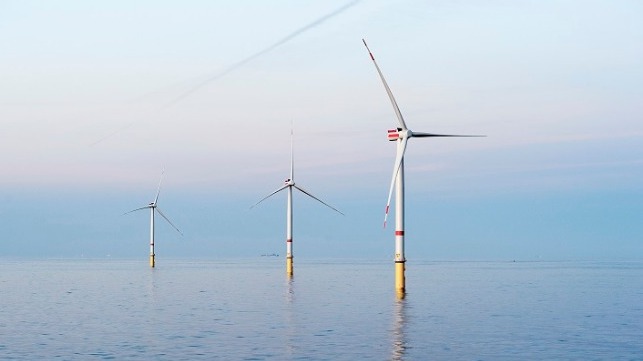Ørsted Expects $2B in Charges, Questioning Finances of US Offshore Wind

In more bad news for the U.S. wind energy business, Ørsted, the world’s largest developer of offshore wind farms, detailed a litany of problems in its U.S. projects that it said could result in an impairment charge of as much as $2.3 billion. While saying they expect to proceed with the projects, they noted that final investment decisions have not been reached for many of their U.S. projects and the investment community reacted by punishing the company with a loss of a quarter of its stock price or more than $8 billion in market value.
Ørsted is only the latest in a series of offshore wind farm developers to say that the changing economics due in part to inflation have undermined the original financial decisions and called into question the economics of the entire sector and capabilities of the U.S. Last year, Avangrid, the U.S. developer owned by Spanish energy company Iberdrola, repeatedly cited the increased costs and changes in the supply chain and market calling for revised power agreements and they were joined by a partnership between Shell New Energies and Ocean Winds North America (a joint venture between EDP Renewables and ENGIE) which also said the economics of the projects had changed. Similarly, Equinor and BP have also said that they need to negotiate power price agreements as market changes made it impossible to finance their planned projects for New York.
“The situation in U.S. offshore wind is severe,” Mads Nipper, the President and Chief Executive of Ørsted said during a conference call today. He cited adverse impacts related to the supply chain, high-interest rates, and a lack of favorable progress on U.S. Investment Tax Credits. The company said as a result “Ørsted’s near-term U.S. offshore wind development portfolio does not meet our value creation target.”
They detailed a series of factors saying that the Ocean Wind 1, Sunrise Wind, and Revolution Wind projects are all being adversely impacted by supplier delays. They referred to problems in building foundations and the shortage of installation vessels saying it could “require future mobilization to finish installation,” as well as delayed revenues and extra costs. They said this alone could result in more than $700 million of the impairment charge.
Interest rates they said accounted for another portion of the impairment charge. They cited the rise in long-dated interest rates saying if they remain at the current level by the end of the third quarter the impairment would be more than $700 million.
Finally, the company is pushing the U.S. for additional Investment Tax Credit beyond the 30 percent they have received for the Ocean Wind 1 and Sunrise Wind projects. They are targeting at least 40 percent but said it was nearly impossible to achieve under the current terms due to a lack of supply of U.S. materials. Ørsted cited the lack of U.S. capacity, an issue that many observers have already noted, with the company saying it is costing them on their targeted tax credit. They estimated the impairment at nearly $880 million from their original plan.
Ørsted said it remains convinced about the longer-term value-creation prospects and continues to make progress on its projects. They said they are working toward final investment decisions on Ocean Wind 1, Sunrise Wind, and Revolution Wind, towards the end of 2023 or in early 2024 saying Ocean Wind 1 is expected to commission in 2026. Nipper however speaking with reporters left open the possibility of a walk-away scenario if it is the economical, rational decision.
Other offshore wind developers rushed to reassure the market saying that they did not believe they were facing the same scenario, especially in the international markets beyond the U.S. Vattenfall, however, a month ago announced it was shelving a large UK project for similar reasons and would take a $500 million impairment charge.
Yesterday, the U.S.’s much-ballyhooed first auction of leases for the Gulf Coast also fell flat. Only two companies participated in the bidding raising just $5.6 million in two rounds for one site. There were no bids on the other two sites.
Analysts expect that the companies will be reexamining their portfolios and strategies. They also expect changes in the bidding strategy noting that the current problems are in part due to the long process of approvals from the auctions till the projects can be built and start commercial operations.
